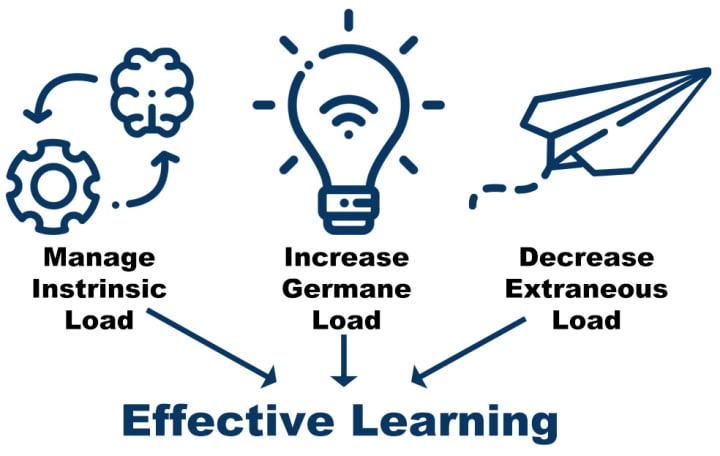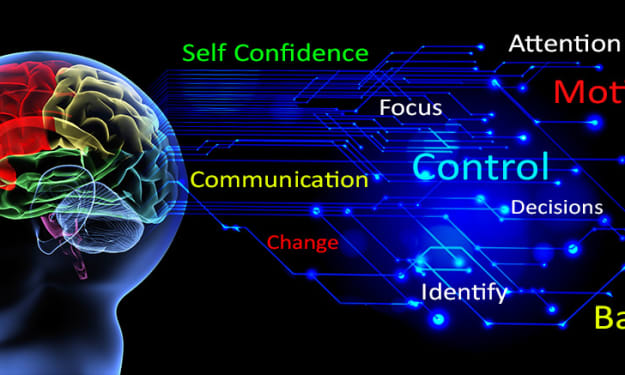Strategies to Reduce Cognitive Load for Online Learning
Navigating the Cognitive Maze

The digital age has revolutionized the way we acquire knowledge, bringing education to our fingertips through the wonders of online learning. However, this technological boon comes with its own set of challenges, and one of the most formidable adversaries in the realm of digital education is cognitive load. Imagine trying to navigate a maze in your mind while juggling multiple tasks and information inputs; that's the cognitive maze, and it's time to equip ourselves with strategies to conquer it.
In the captivating world of online learning, cognitive load refers to the mental effort required to process and retain new information. Just as a computer can slow down when it has too many applications running simultaneously, our minds can become overwhelmed when we're bombarded with a plethora of information. The result? Learning becomes not just an enlightening experience, but a daunting one.
Cognitive Load in Online Learning
Picture yourself sitting in front of your computer, engrossed in an online lecture. Your screen is a mosaic of tabs, slides, videos, and text. Your professor's voice is streaming through your headphones, and you're diligently taking notes. Yet, amidst the flurry of information, you might find your attention wavering, your understanding slipping, and your ability to remember fading. This is the cognitive load in action.
There are three types of cognitive load: intrinsic, extraneous, and germane. Intrinsic load refers to the inherent complexity of the learning material itself. Extraneous load relates to the unnecessary cognitive effort caused by poor instructional design or distractions. Lastly, germane load is the desirable mental effort required to process and integrate new information into existing mental structures. Online learning can amplify all three types of cognitive load if not approached strategically.

Cracking the Code: Strategies to Reduce Cognitive Load
The journey through the cognitive maze can be made smoother with some well-defined strategies. Here's your roadmap to reducing cognitive load and enhancing your online learning experience:
1. Organized Learning Spaces: Just as a clutter-free room can calm your mind, an organized digital learning space can ease cognitive load. Create a dedicated learning environment that is free from distractions. Keep your tabs and applications in check, and curate your digital workspace to focus solely on the task at hand.
2. Chunking Information: Imagine a puzzle; it's easier to solve when the pieces are grouped together. Similarly, chunking involves breaking down complex information into smaller, manageable parts. This technique enables your brain to process and remember information more effectively.
3. Visual Aids and Multimedia: A picture is worth a thousand words, and in the context of online learning, visual aids can significantly reduce cognitive load. Infographics, diagrams, and videos can simplify complex concepts, making them easier to comprehend and remember.
4. Clear Instructions and Navigation: In the virtual realm, clear instructions and intuitive navigation are essential. Professors and course designers play a crucial role in mitigating cognitive load by providing well-structured content, easy-to-follow directions, and logical organization.
5. Spaced Repetition and Active Recall: Revisiting information at spaced intervals and actively recalling it from memory can reinforce learning. This approach strengthens memory retention, reduces the cognitive effort required to relearn, and enhances long-term understanding.
6. Interactive Learning: Engaging with the material through quizzes, discussions, and collaborative activities transforms passive learning into an active experience. By participating in interactive sessions, you're not only reducing cognitive load but also fostering a deeper understanding of the subject matter.
7. Reflective Practice: Take time to reflect on what you've learned. Jotting down notes, summarizing key points, or discussing concepts with peers can solidify your understanding and help you connect the dots, ultimately reducing cognitive load during future learning sessions.
8. Mindfulness and Breaks: Remember, your brain isn't a machine—it needs breaks to recharge. Incorporate mindfulness techniques and short breaks during your online learning journey to prevent cognitive overload and enhance your ability to absorb information.
9. Personalized Learning: Recognize that everyone's cognitive capacity differs. Tailor your learning experience to your own pace and preferences. This might involve adjusting playback speed, taking additional time for challenging topics, or seeking supplementary resources.
10. Continuous Learning Improvement: Treat your online learning experience as a laboratory. Observe what strategies work best for you and refine them over time. Experiment with different techniques, stay open to feedback, and continuously adapt your approach to reduce cognitive load.
Conclusion
In the vast landscape of online learning, navigating the cognitive maze might seem like a formidable task. However, armed with these strategies, you can conquer the challenges of cognitive load and transform your learning experience from a confusing maze into a seamless journey of discovery. Embrace organized spaces, leverage multimedia, engage actively, and remember to give your brain the breaks it deserves. As you implement these techniques, you'll find yourself not only mastering your subjects but also becoming a seasoned navigator of the cognitive maze. Your online learning voyage awaits—chart your course with confidence!






Comments
There are no comments for this story
Be the first to respond and start the conversation.